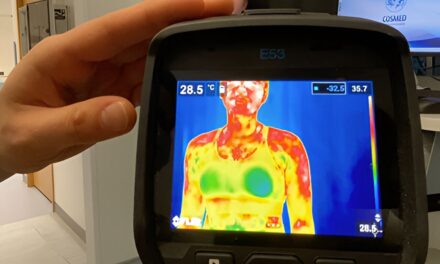A recent study published in Science Advances has unveiled a concerning link between early-life vitamin D deficiency and the development of autoimmune conditions, including type 1 diabetes. This research sheds light on the mechanisms through which insufficient vitamin D levels can lead to a failure in the immune system, particularly involving T cells, which are crucial in distinguishing healthy cells from infected or unhealthy ones.
Vitamin D’s Role in Immune Function
Vitamin D is widely recognized for its importance in maintaining bone health; however, its role in regulating the immune system is increasingly being acknowledged. A lack of vitamin D during critical developmental periods may contribute to the emergence of autoimmune diseases, wherein the body’s immune response mistakenly targets its own tissues. Observational studies have previously suggested a correlation between low vitamin D levels and an increased incidence of autoimmune diseases, but the underlying mechanisms have remained elusive.
Study Findings on T Cells and Thymic Development
The study, led by Dr. John White, a professor of physiology at McGill University, focused on a mouse model genetically modified to lack the enzyme Cyp27b1, which is necessary for converting vitamin D into its active form. The researchers found that mice with vitamin D deficiency exhibited a smaller thymus—a gland responsible for the maturation of T cells—and a reduced population of T cells in their bloodstream. This impairment suggests accelerated thymic aging, which is detrimental to T cell development.
Dr. White highlighted the findings, stating, “Our study showed that vitamin D is necessary for normal thymic development, optimal ‘weeding out’ of self-reactive T cells, and thymic longevity.” T cells undergo a rigorous selection process in the thymus, where those that react to the body’s own proteins (self-antigens) are typically eliminated to prevent autoimmune reactions. However, vitamin D deficiency disrupted this balance, resulting in an overproduction of autoreactive T cells that can attack healthy tissues.
Mechanisms of Autoimmunity and Type 1 Diabetes
The implications of these findings are significant, particularly concerning type 1 diabetes. In older mice deficient in vitamin D, researchers observed impaired glucose regulation, a hallmark of diabetes, as well as elevated levels of autoantibodies in specific tissues, including the lungs and salivary glands. These observations align with the notion that early-life vitamin D deficiency may set the stage for the development of autoimmune disorders later in life.
The study reveals that vitamin D enhances the expression of the autoimmune regulator (Aire) gene, which is critical for the proper selection of T cells in the thymus. A reduced expression of this gene due to vitamin D deficiency can lead to a failure in the elimination of self-reactive T cells, thereby increasing the risk of developing autoimmune diseases.
Conclusion
This groundbreaking research underscores the importance of maintaining adequate vitamin D levels during early development to support immune system function and prevent autoimmune conditions. As the body of evidence linking vitamin D deficiency to autoimmune diseases continues to grow, it highlights the need for public health initiatives aimed at promoting optimal vitamin D intake, particularly among vulnerable populations during formative years. Further studies are warranted to explore the full extent of vitamin D’s impact on immune regulation and its potential role in preventing autoimmune diseases like type 1 diabetes.











